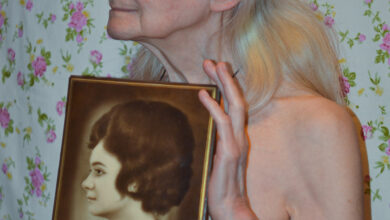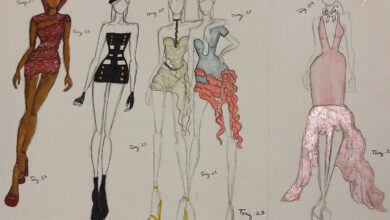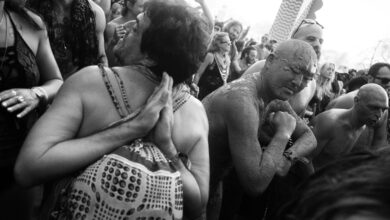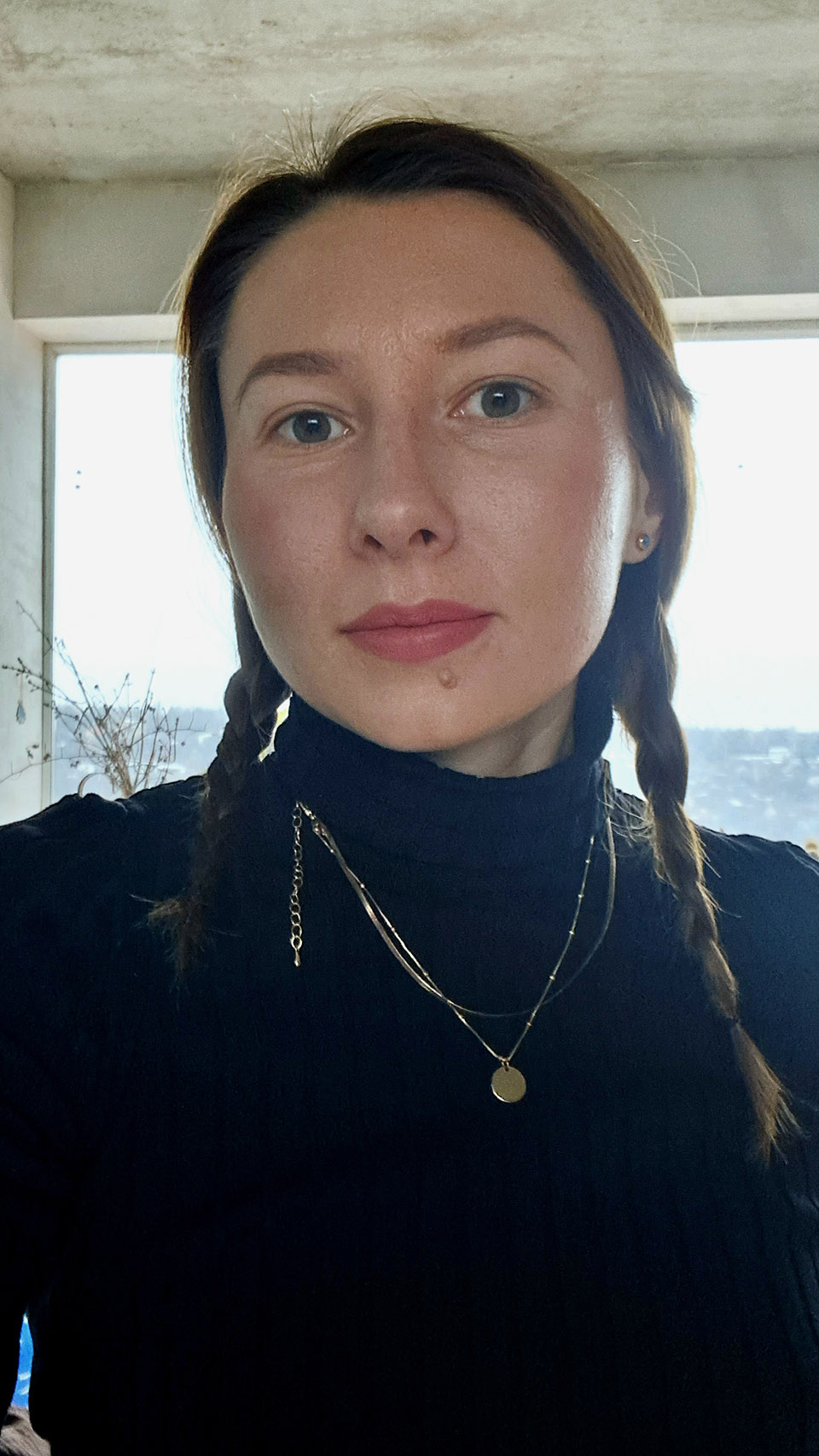
My name is Jane. I am a photographer from Ukraine. The war caught up with me when I was in my village, Cherkas’kiy Tyshky, with my grandfather and grandmother. We were occupied instantly on February 24, 2022, at 6 a.m.
15 kilometers is the distance that separated our village, which was under occupation by Russian forces, and Kharkiv, which was held by Ukrainian troops.
I spent 20 days under occupation before I managed to escape. I fled on March 15, 2022. First I was in Latvia, then Germany, and finally Austria, which is where I am currently based and engaging in creative endeavors.
On Sunday May 8, 2022 the Ukrainian army liberated my village, which is between Kharkiv and the Russian border, after 73 days under Russian occupation. I returned home on November 15th, 2022 to witness what had happened.
Despite the fact that life in Austria is like a fairy tale—a magical country shrouded in mountains, quiet and peaceful—I am constantly drawn home. Now that the situation at the front has changed dramatically in the direction of Ukraine and the entire Kharkiv region has been liberated from the Russian invaders, I decided to go home, to visit where I fled from the war.
—
I lived most of my life in Northern Saltivka. I went to kindergarten here, travelled daily to the art academy from Severka, as we called it then. This is a completely autonomous area that had everything for a comfortable life. Previously, Northern Saltivka had 600 thousand inhabitants and it was rapidly developing: new residential complexes, supermarkets, infrastructure were built. Finally, Northern Saltivka began to get rid of its Soviet past. It seemed that everything was gradually changing for the better; it was becoming a quality and comfortable life. But Russia decided to save us…
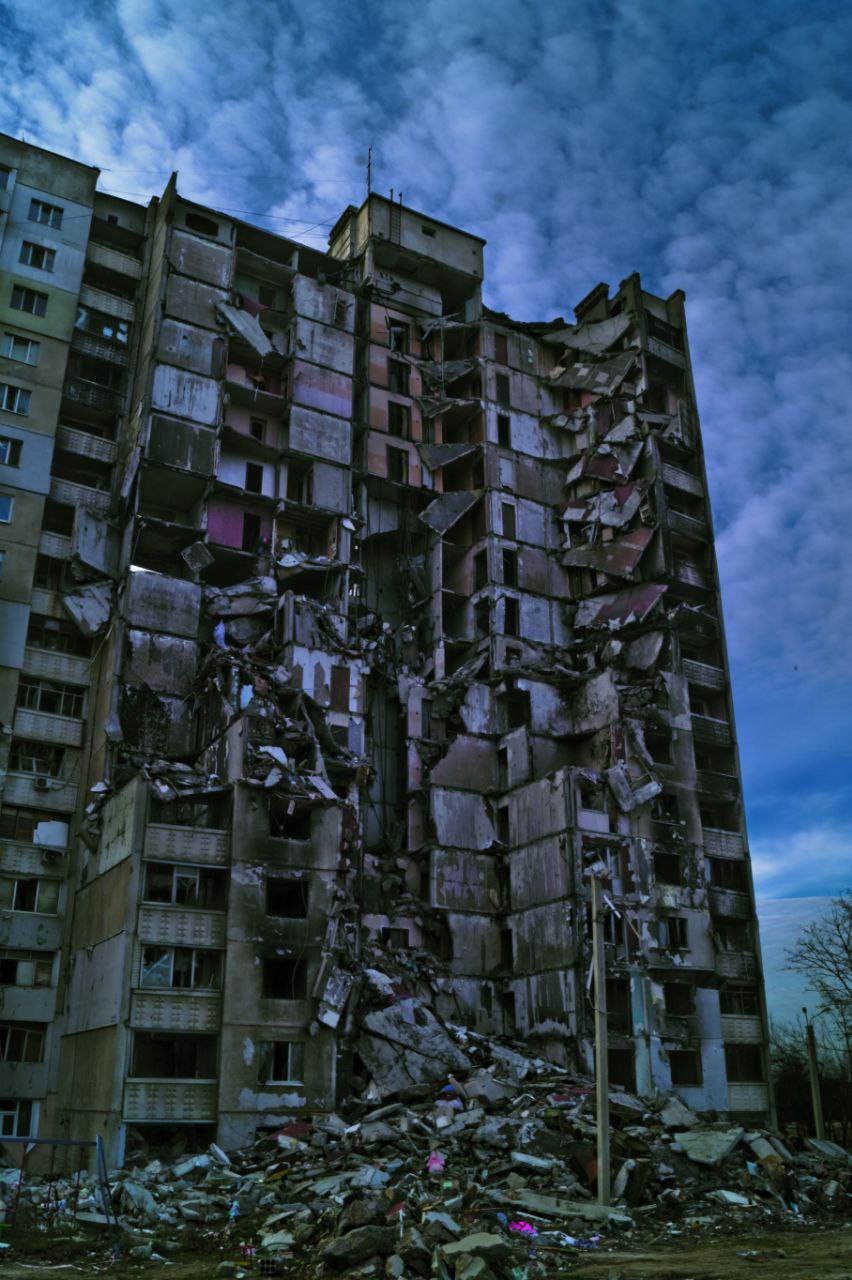
Now, in one of the largest districts in the world, there is not a single surviving house: you can see only broken windows, a hole in the wall from an unexploded shell, the torn out insides of the houses hanging outside and creaking with their burnt rags.
Walking along the empty streets, you can’t help feeling as if someone is watching you. The houses look at you through their black burnt windows.
They are vigilant… to prevent the enemy from entering Kharkiv again, to prevent the sound of cannonade.
Meanwhile, their crippled bodies moan and swell from rotting, but they are standing, waiting for their turn to be restored, waiting for their owners to return.
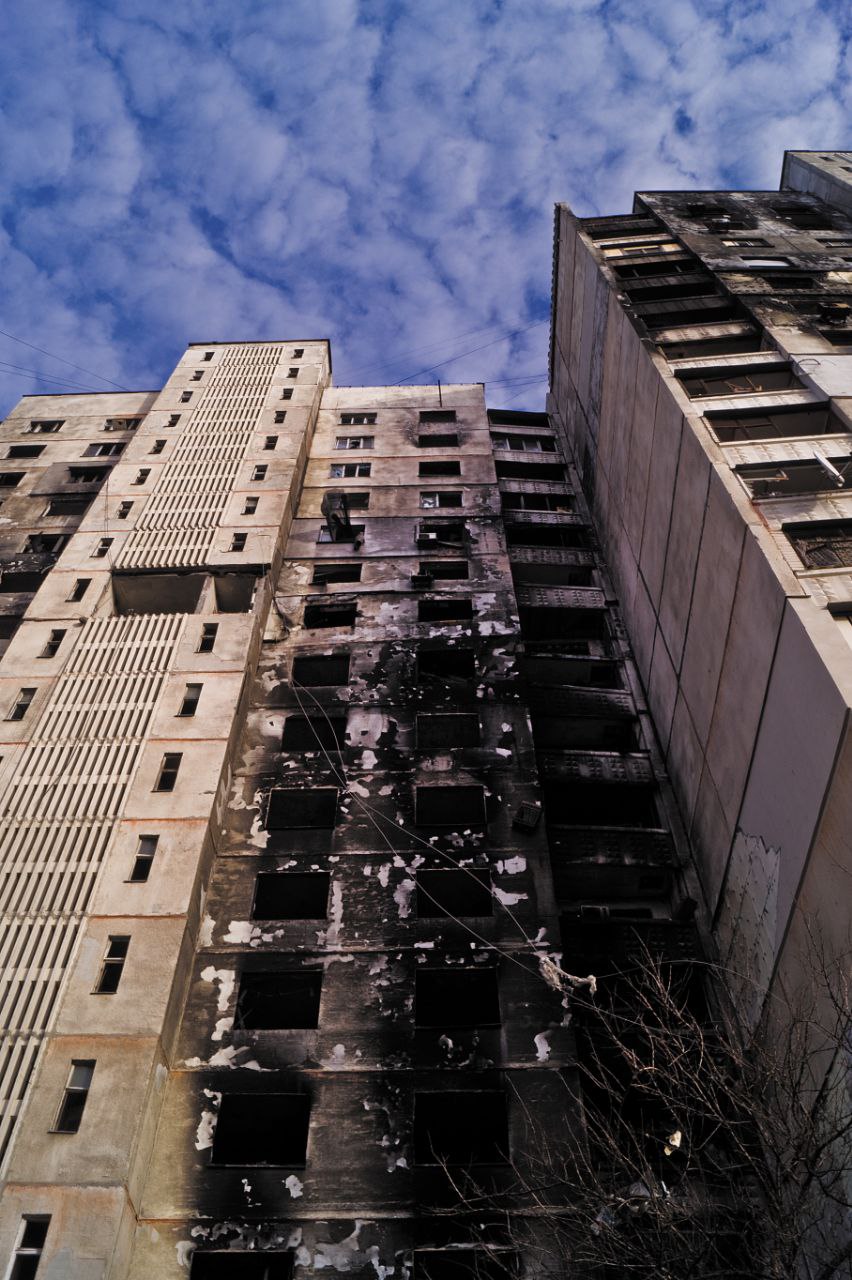

Utility workers scurry through the frozen, deserted streets, looking for what to repair, what to save. I approach one of them:
“Good day.”
He switches to broken Ukrainian.
“Good afternoon.”
“Are you restoring this house?”
“Yes.”
He says calmly and proudly.
“Even this one? It’s missing a whole part!“
“Yes, even this one. We will rebuild everything slowly, slowly… not all at once.”
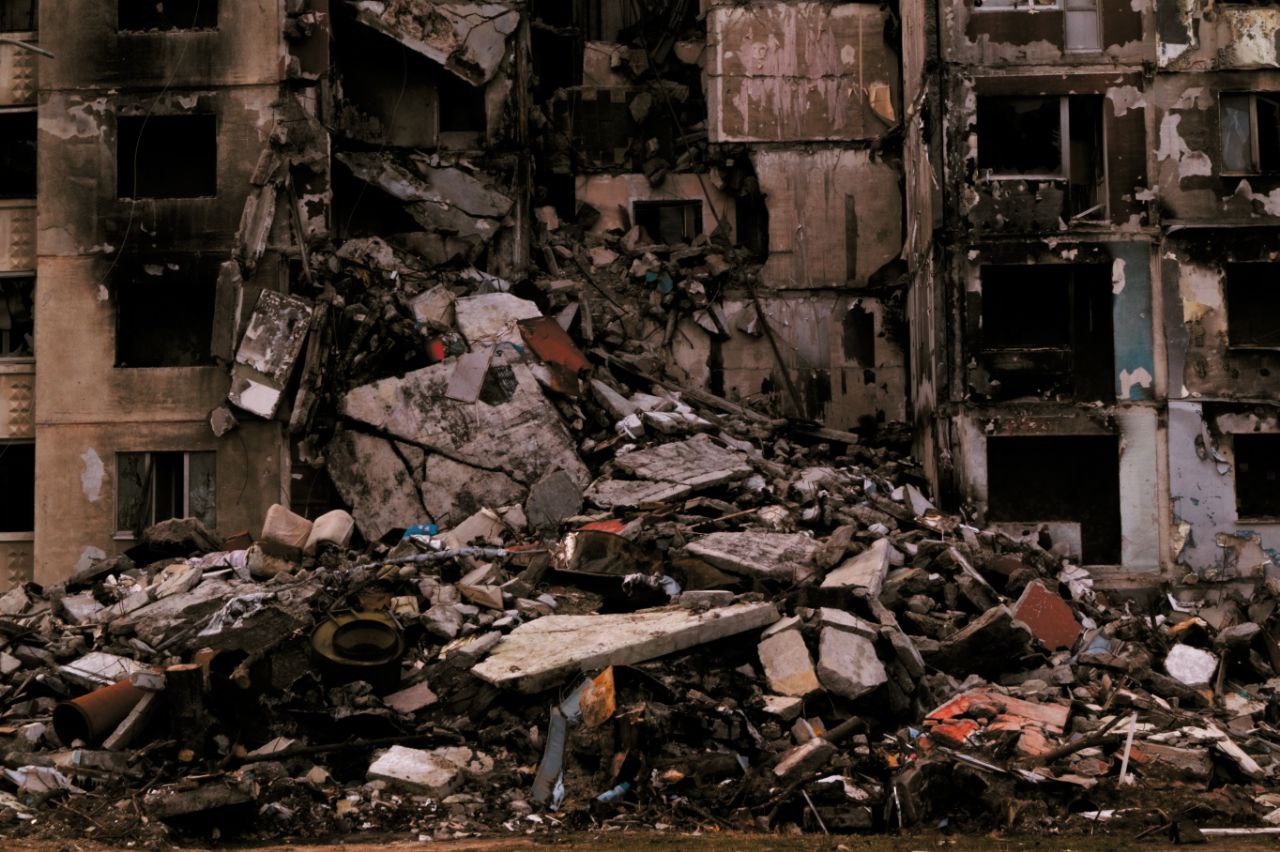
I’m going on. The first snow fell the night before. Black branches bent under heavy, shaggy snow. I pass by the house of one of my teachers; it is almost completely destroyed. I remember how she invited us to visit her, set the table, and we talked about school life over a cup of tea. It was so long ago, as if in another life.
And now in the black holes of her house you can see the past life. There is a burnt bathtub, there is a picture blackened by fire. The whole life of people is turned outwards, as if the body was cut in the morgue to establish the cause of death. But we know the reason: a missile fired by the Russians. It killed, it tore lives to pieces. An elderly woman is standing near the house. I greet her. I ask her:
“Do you live here?”
“I used to live here. Now I come to bathe.”
“In this house? Most of it is missing.”
“Yes, here.”
The woman goes on about her business.
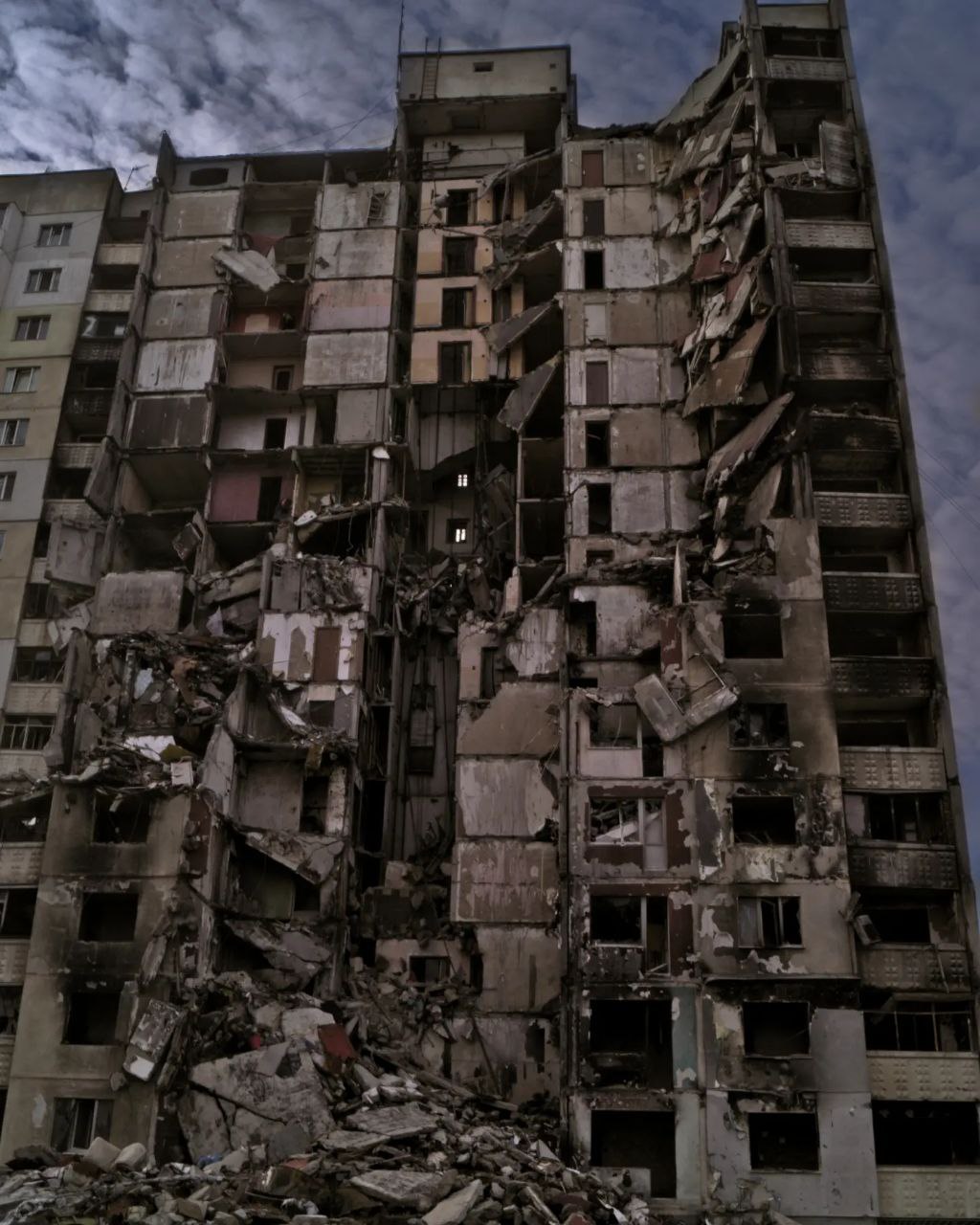
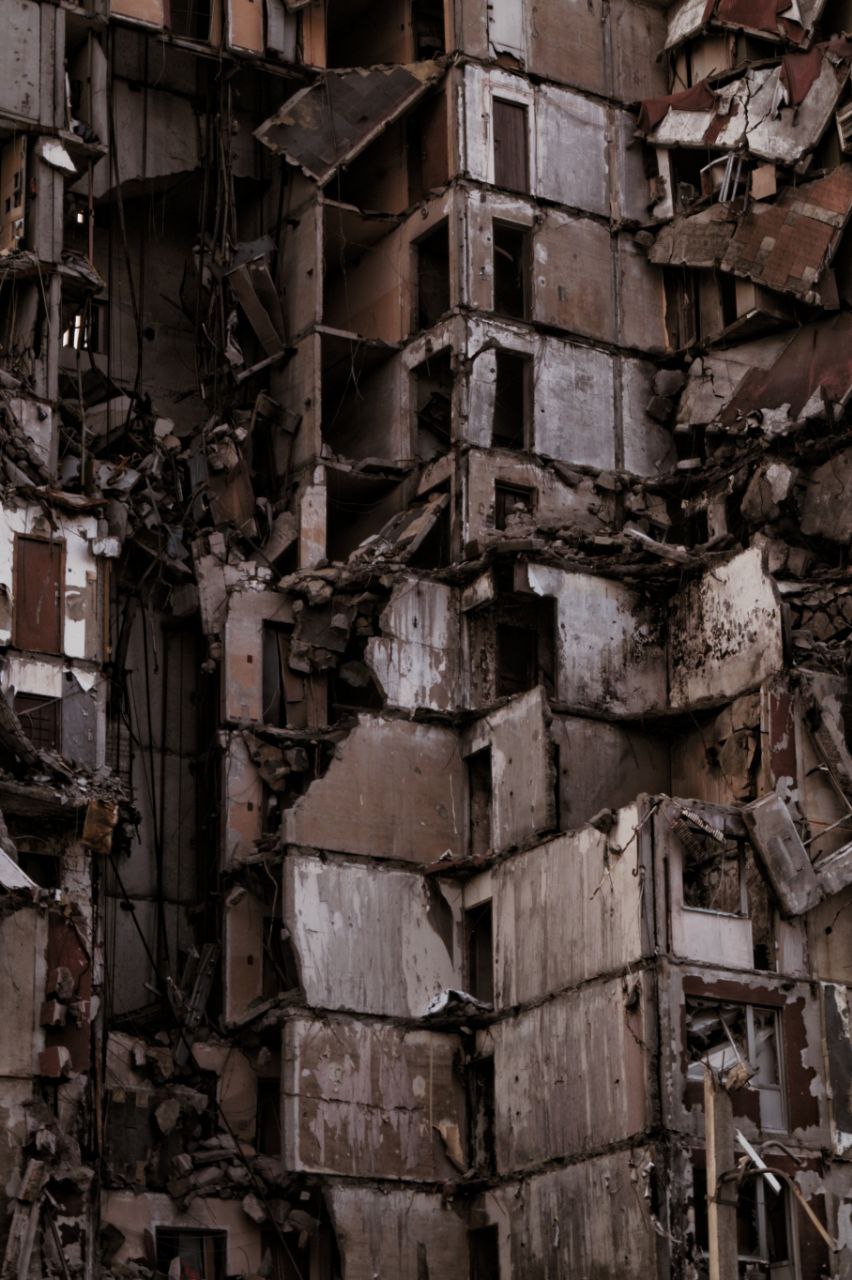
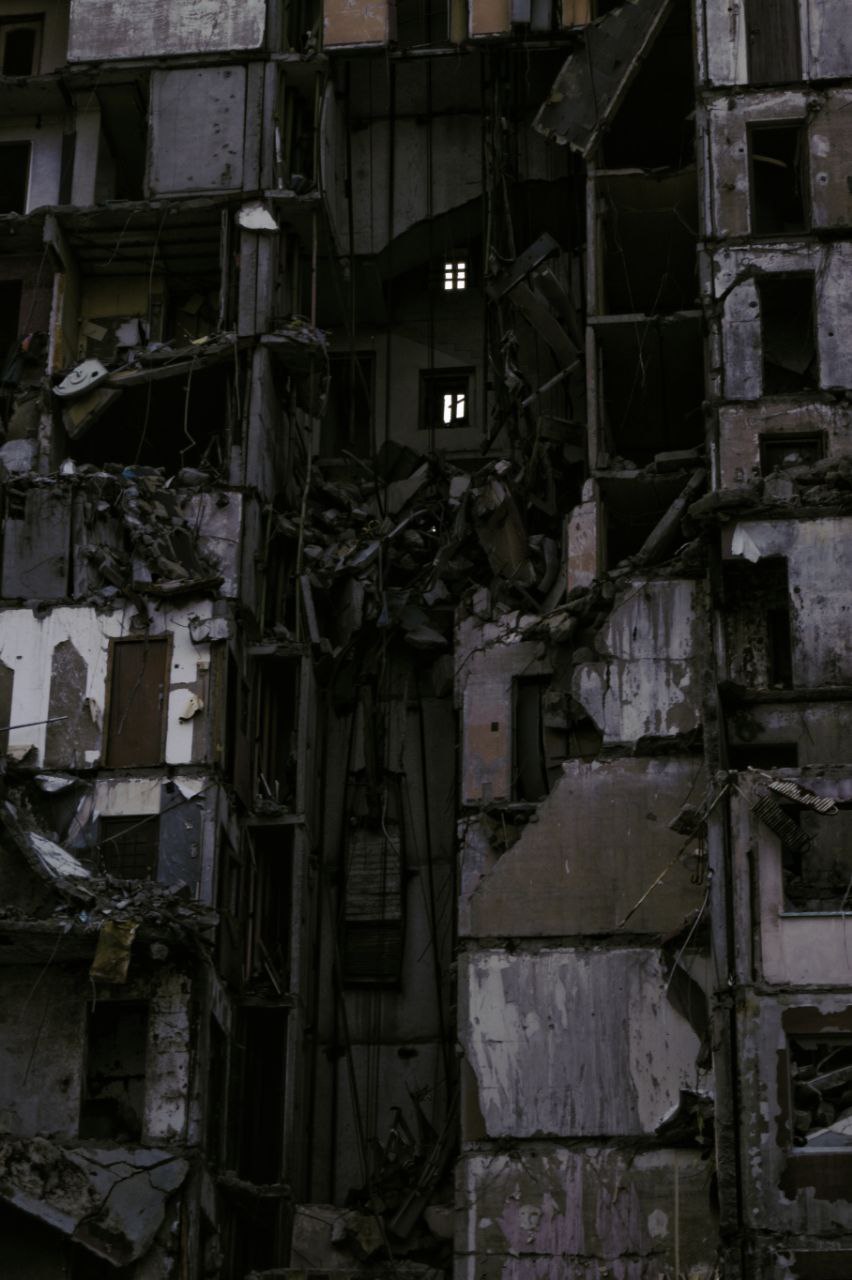
I can’t imagine how you can go about life in a dilapidated house, which is swollen from the explosion and seems to be about to fall.
I cross the bridge to Natalii Uzhvii Street. This is one of the first lines of buildings that can be said to have held the defense, stood as a shield.
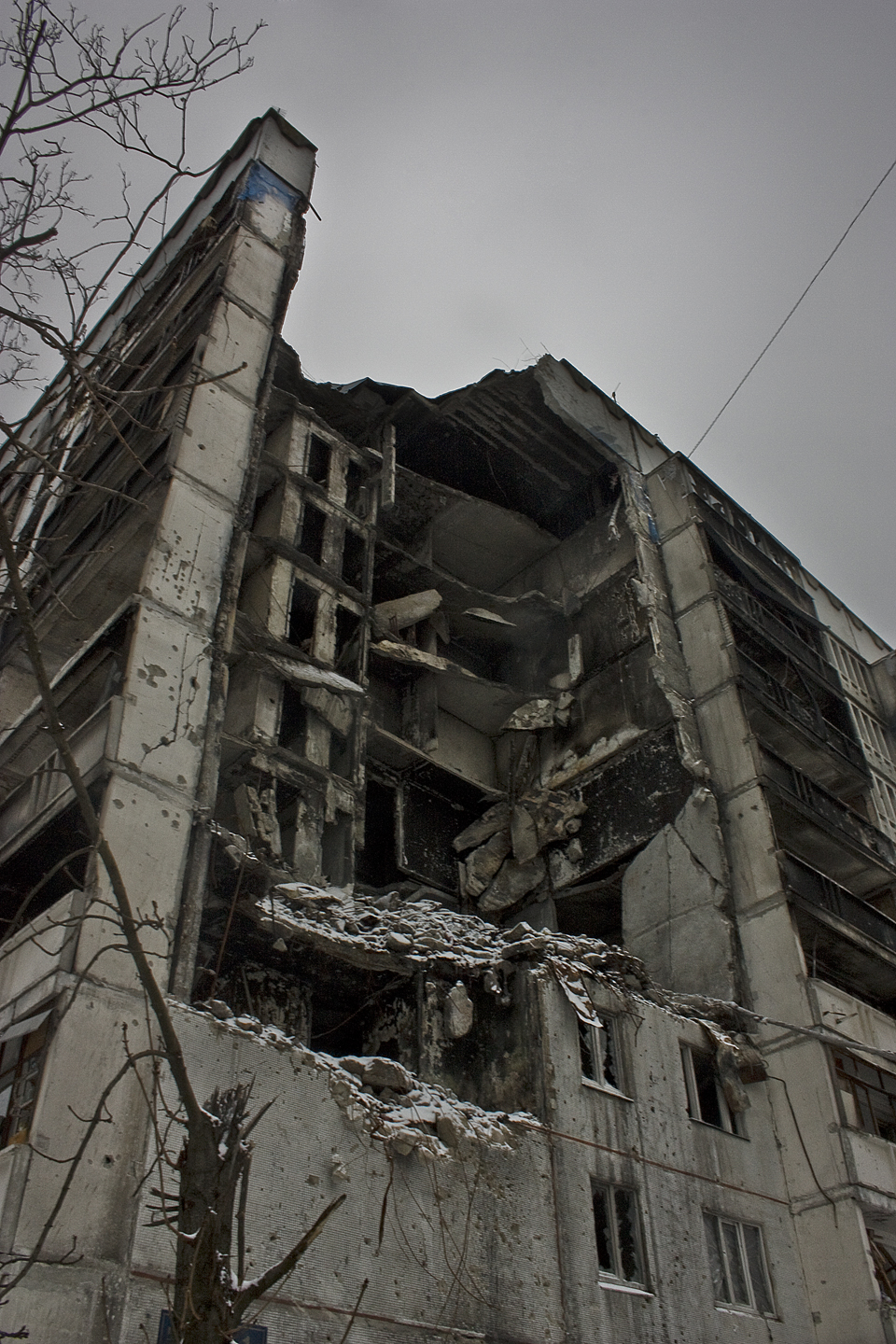
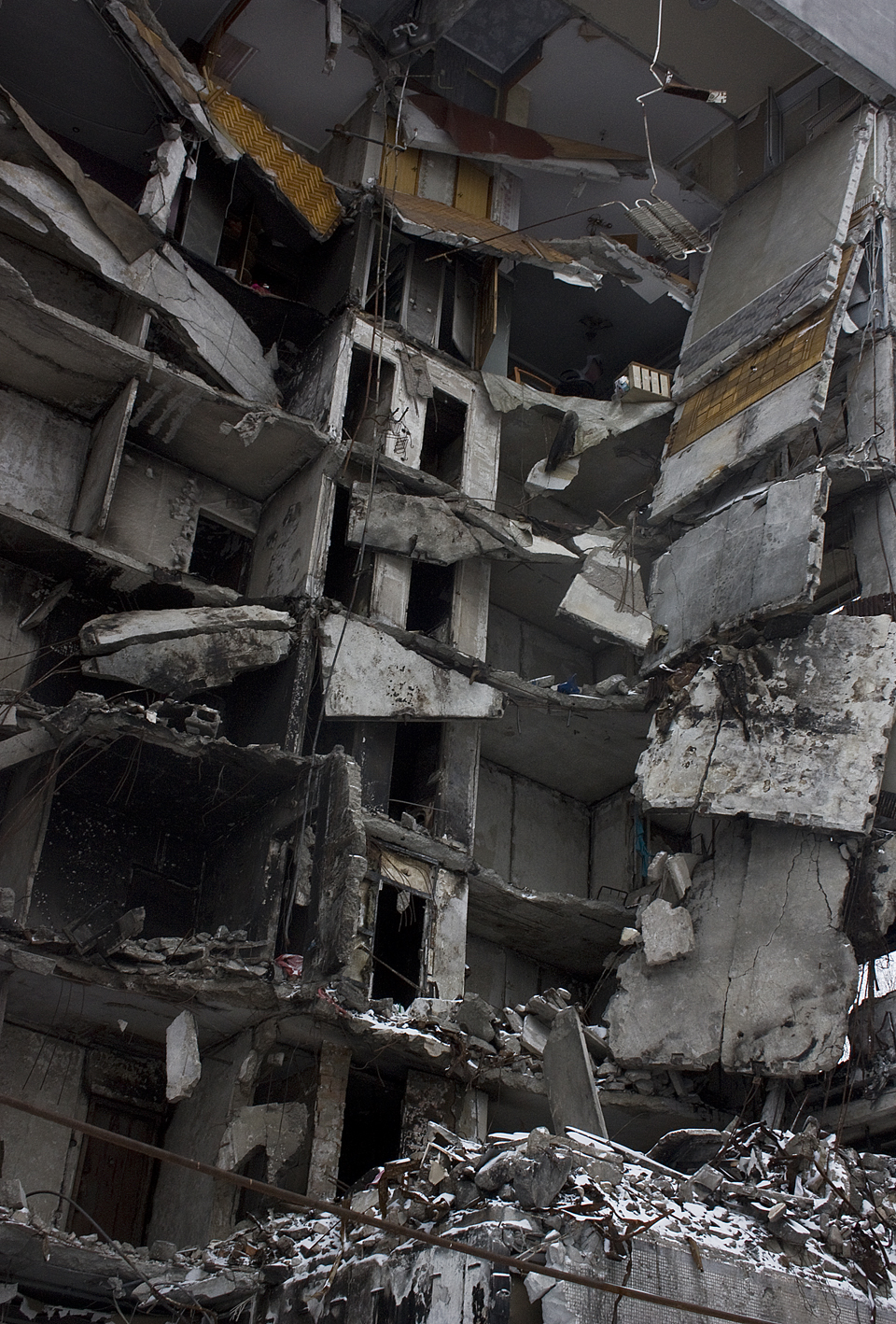
To say that this is a post-apocalyptic spectacle is an understatement. One of the slabs of a house hangs on the reinforcement and is about to fall. It creaks with every gust of wind, howls in pain. It was the wall of a room. People hung photos and shelves on that wall. It seemed so reliable, and now it hangs on one iron thread, like an autumn leaf trembling.
Everything that seemed monolithic—reliable—has fallen.
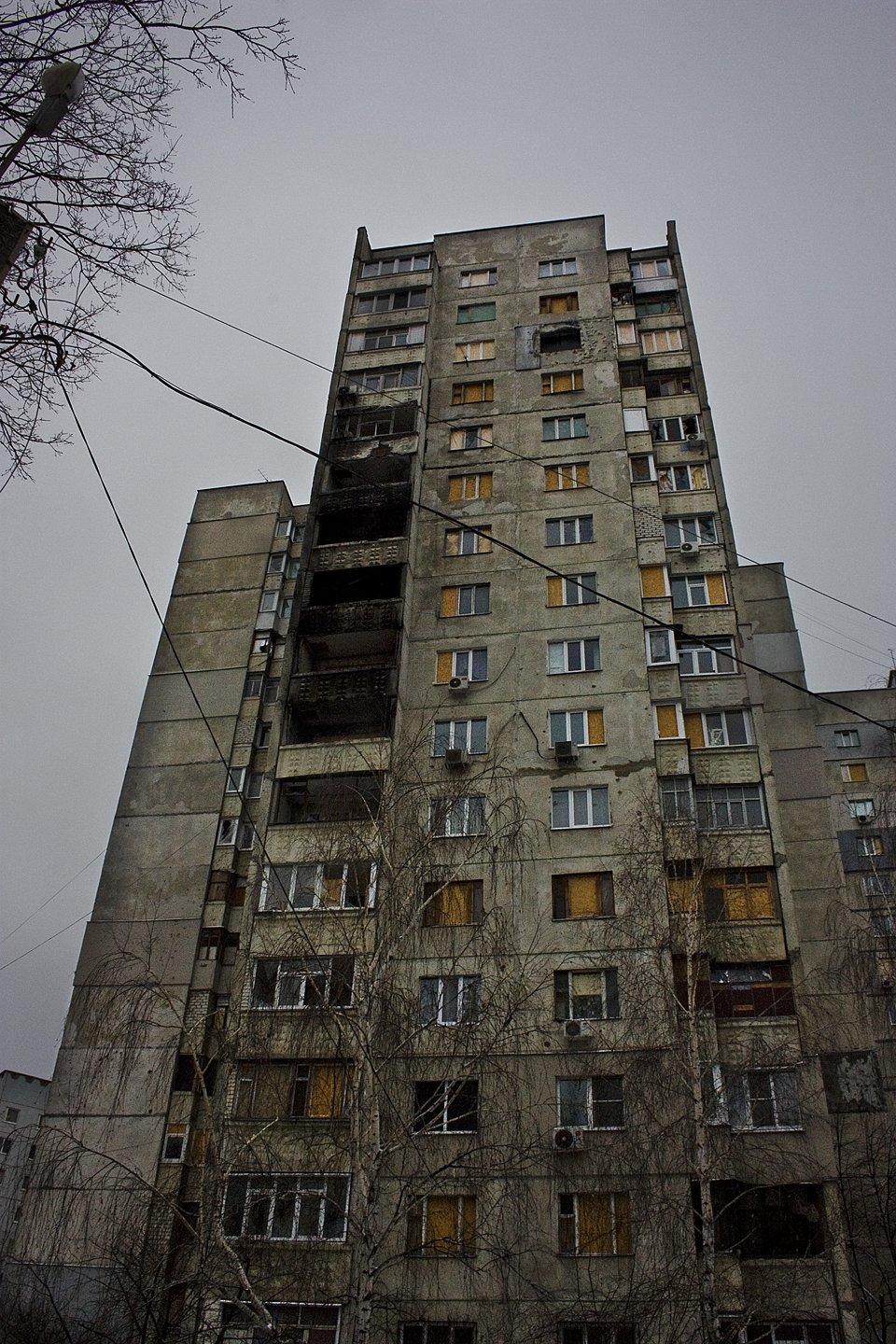
The closer to the first line, the more the silence becomes unbearable. It thickens, it reeks of fear. Suddenly a big black dog appears in front of me. It strikes me as the devil coming out of the ground and now standing before me, looking at me, sniffing cautiously. But I notice that he is trembling; even the devil is scared here.
I go deeper into the area, plunging into the thicket of death. Yes, it reigns here, here is its feast. And the mute houses witness its bloodthirsty dance. Deeper and deeper, the destruction becomes bigger and bigger, as if Death has shown all its power, all its fury. As if it was biting into houses and tearing out entire apartments with large blisters, like ancient people sacrificing the heart of the enemy to the god of war. The torn body was left to be picked apart by vultures.
So there are hundreds of gutted high-rise buildings, without entrails, with the body turned inside out.
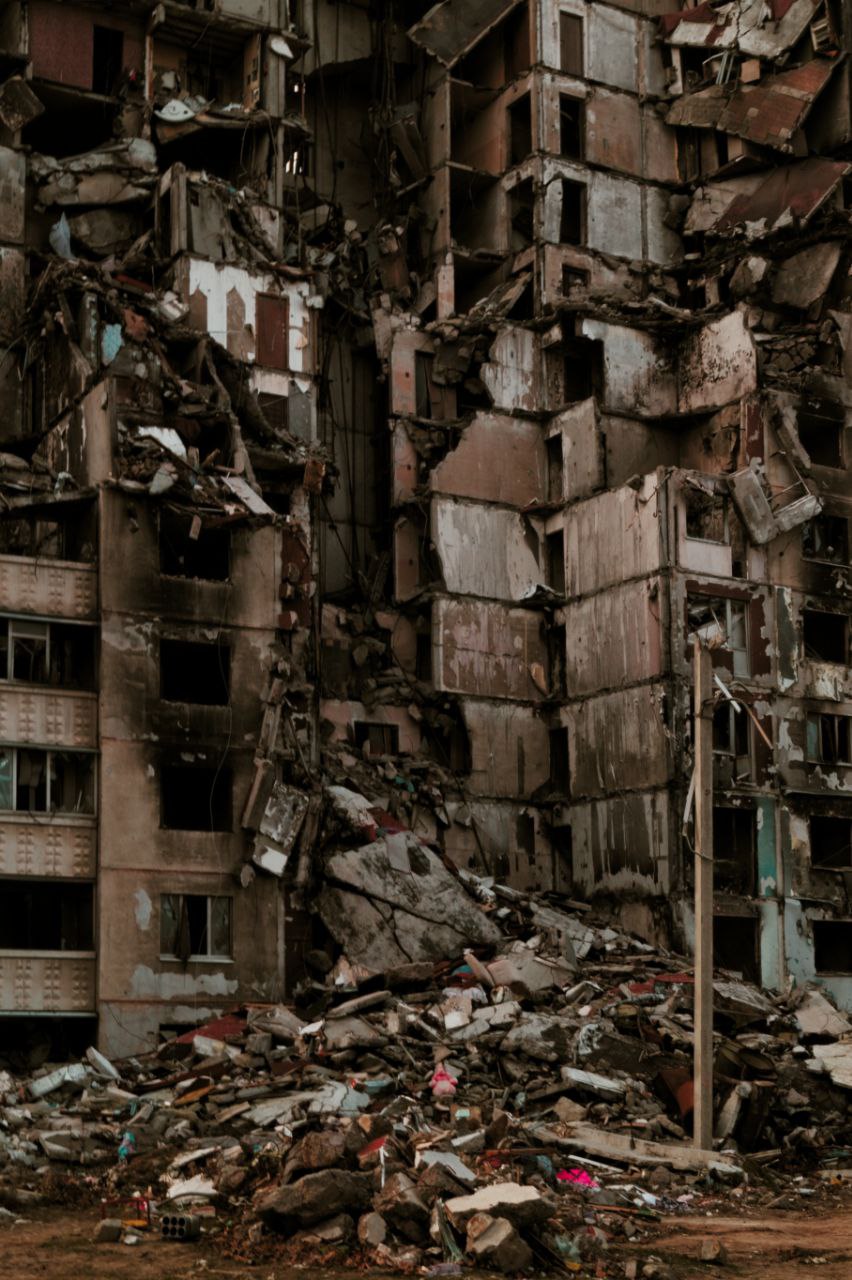
But the dance of death is over. The god of war has gone to the South; he is raging there now, while a painful silence reigns in Northern Saltivka. But in that silence, here and there, you can hear a hammer, a drill or a broom rustling. People are returning to their crippled homes. They believe that they will be able to rebuild everything.
Six hundred thousand people, who were forced to leave the area while the god of war was raging here, are now slowly filling the ghost houses. Soon the light will shine in them—the light of new life.
On the way there is a bus, I get on it and go to another part of the city, where everything is intact. It’s as if there was no war here. But the terrible smell of burning has embedded into my body, and now I too am like that crippled house, waiting for the war to end and life to shine again.
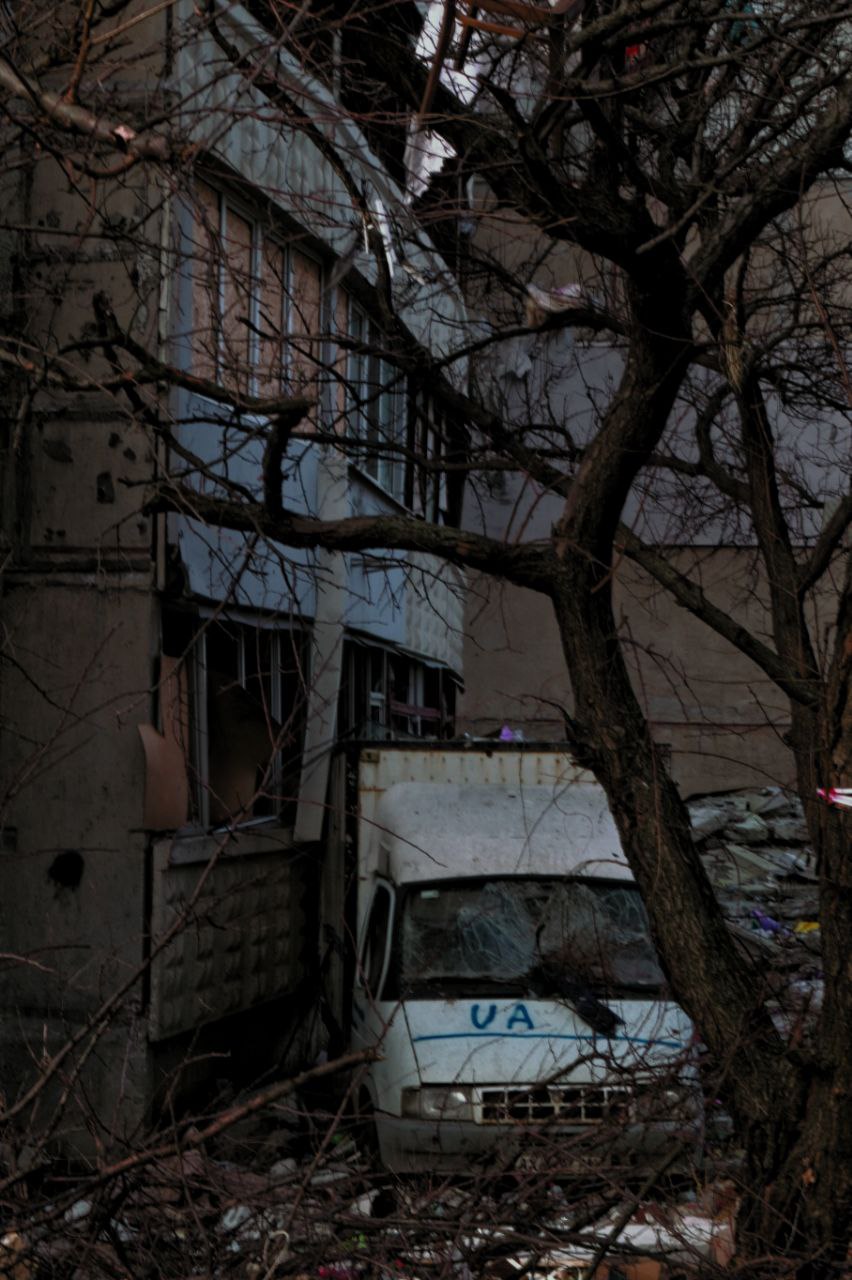
All photos taken by Yevgenia “Jane” Laptii in Northern Saltivka in the the region of Kharkiv between November 18 and December 3, 2022.
The translation was edited by Michaela Doyle.
To boot…
Read more from Jane in her special series 15 kilometers, part one to part ten.

